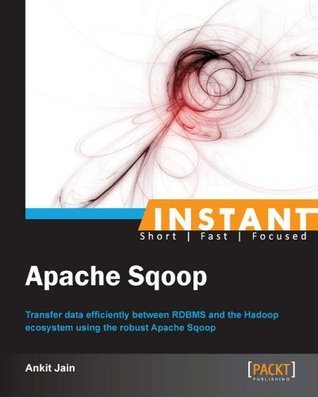What do you think?
Rate this book


In today’s world, data size is growing at a very fast rate, and people want to perform analytics by combining different sources of data (RDBMS, Text, and so on). Using Hadoop for analytics requires you to load data from RDBMS to Hadoop and perform analytics on that data, before then loading that process data back to RDBMS to generate business reports.
Instant Apache Sqoop is a practical, hands-on guide that provides you with a number of clear, step-by-step exercises that will help you to take advantage of the real power of Apache Sqoop and give you a good grounding in the knowledge required to transfer data between RDBMS and the Hadoop ecosystem.
Instant Apache Sqoop looks at the import/export process required in data transfer and discusses examples of each process. It will also give you an overview of HBase and Hive table structures and how you can populate HBase and Hive tables. The book will finish by taking you through a number of third-party Sqoop connectors.
You will also learn about various import and export arguments and how you can use these arguments to move data between RDBMS and the Hadoop ecosystem. This book also explains the architecture of import and export processes. The book will also take a look at some Sqoop connectors and will discuss examples of each connector. If you want to move data between RDBMS and the Hadoop ecosystem, then this is the book for you.
You will learn everything that you need to know to transfer data between RDBMS and the Hadoop ecosystem as well as how you can add new connectors into Sqoop.
ApproachFilled with practical, step-by-step instructions and clear explanations for the most important and useful tasks. Instant Apache Sqoop is full of step-by-step instructions and practical examples along with challenges to test and improve your knowledge.
Who this book is forThis book is great for developers who are looking to get a good grounding in how to effectively and efficiently move data between RDBMS and the Hadoop ecosystem. It’s assumed that you will have some experience in Hadoop already as well as some familiarity with HBase and Hive.
58 pages, Kindle Edition
First published January 1, 2013